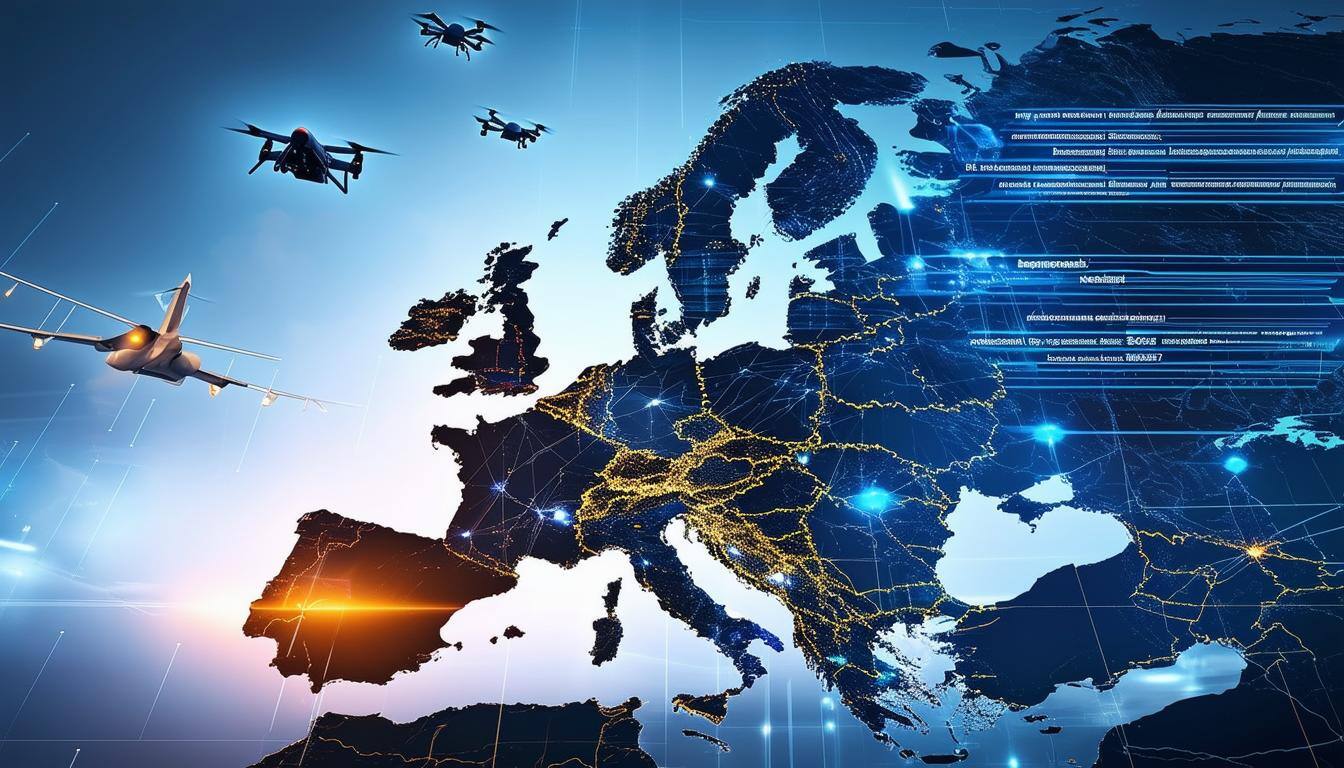How to Invest into Emerging Technologies in Europe
Europe, with its rich history of innovation, has a significant role in shaping this sector's future. From the ancient Greeks' contributions to philosophy and mathematics to the Renaissance's advancements in art, science, and technology, Europe has been at the forefront of human progress for centuries. With EU innovation in mind, let's explore some of the most promising emerging technologies in aerospace and defense and their potential impact on the European market.
Cyber Defense and Resilience
Cybersecurity has become a paramount concern in today's interconnected world. The aerospace and defense industries are particularly vulnerable to cyber threats due to the critical nature of their operations. European countries are investing heavily in developing robust cyber defense capabilities to protect their critical infrastructure and sensitive information.
Many European countries have established national cybersecurity centers to coordinate and oversee cyber defense efforts. These centers provide guidance, support, and expertise to government agencies and private sector organizations. Prominent examples include:
- National Cyber Security Centre (NCSC) in the UK: The NCSC is responsible for protecting the UK's critical infrastructure from cyber attacks.
- Agence Nationale de la Sécurité des Systèmes d'Information (ANSSI)is the French National Agency for the Security of Information Systems.

Artificial Intelligence and Machine Learning
AI and ML are revolutionizing various industries, and the aerospace and defense sector is no exception. These technologies can be used for tasks such as predictive maintenance, autonomous systems, and data analysis. European researchers and companies are at the forefront of AI and ML development, exploring their potential applications in various areas. To name a few:
- DeepMind: A subsidiary of Alphabet (Google) that is focused on developing general-purpose AI. DeepMind has achieved impressive results in areas such as game playing, protein structure prediction, and healthcare.
- Element AI: A Canadian AI company with a strong presence in Europe. Element AI provides AI solutions to businesses across various industries, including healthcare, finance, and manufacturing.
- Brain Corp: A San Diego-based robotics company with a European subsidiary. Brain Corp develops self-driving technology for commercial robots, such as floor scrubbers and delivery robots.
- Graphcore: A British AI chip company that designs and manufactures specialized processors for AI workloads. Graphcore's technology is used by researchers and businesses to accelerate AI training and inference.
- C3.ai: A California-based enterprise AI software company with a European office. C3.ai provides AI-based applications for various industries, including energy, manufacturing, and healthcare.
UAV Systems
UAVs, or drones, have gained significant traction in recent years due to their versatility and cost-effectiveness. European countries are investing in UAV technology for both military and civilian applications, including surveillance, search and rescue, and agricultural monitoring. The European Union has also taken steps to promote the development and use of UAVs within a regulated framework.

Advanced Sensors and C4ISR Systems
Advanced sensors and command, control, communications, computers, intelligence, surveillance, and reconnaissance (C4ISR) systems are essential components of modern military operations. European countries are investing in cutting-edge sensor technologies, such as radar, infrared, and lidar, to improve situational awareness and target acquisition. Additionally, efforts are underway to integrate these sensors with C4ISR systems to enable more effective decision-making and coordination.
European countries leading the way in sensor technology:
- France: France has a strong tradition in aerospace and defense industries, and it is investing heavily in sensor technologies. French companies and research institutions are developing advanced radar systems, infrared sensors, and lidar for military applications, as well as for civilian sectors like autonomous vehicles and environmental monitoring.
- Germany: Germany's automotive industry is a major driver of sensor technology development. German manufacturers are investing in lidar and radar sensors for autonomous vehicles, as well as infrared sensors for night vision and pedestrian detection systems.
- United Kingdom: The UK has a thriving aerospace and defense industry, and it is investing in cutting-edge sensor technologies for both military and civilian applications. British companies are developing advanced radar systems, infrared sensors, and lidar for military aircraft, drones, and border security.
- Sweden: Sweden has a strong tradition in defense technology, and it is investing in advanced sensor technologies for its military and civilian sectors. Swedish companies are developing radar systems, infrared sensors, and lidar for military applications, as well as for environmental monitoring and autonomous vehicles.
- Netherlands: The Netherlands has a strong focus on research and development, and it is investing in sensor technologies for various applications. Dutch companies and research institutions are developing radar systems, infrared sensors, and lidar for military applications, as well as for environmental monitoring and autonomous vehicles.
Hypersonic Weapons Systems
Hypersonic weapons, capable of traveling at speeds exceeding Mach 5, are a rapidly evolving field of military technology. European countries are conducting research and development in hypersonic weapons systems, to maintain a technological edge and ensure their national security. However, the development and deployment of hypersonic weapons raise ethical and strategic concerns that require careful consideration.
A Future Global Leader
The aerospace and defense industry is experiencing a period of unprecedented technological innovation. Europe has a strong foundation in research and development, and its companies and institutions are well-positioned to capitalize on emerging technologies. By investing in areas such as cyber defense, AI and ML, UAVs, advanced sensors, and hypersonic weapons, Europe can solidify its position as a global leader in the aerospace and defense sector
Category
Related articles
-

Political Winds and Semiconductor Strength?
28 November 2024Politics in a post-election time will significantly influence the global semiconductor industry.
Read more -

Will The US Presidential Election Impact Defense Spending?
4 November 2024Historically, from policy to budget shifts, each U.S. president brings a unique approach to defense...
Read more -

Guide: Navigating Tariffs and Trade Agreements in Europe
30 January 2024By understanding the market dynamics and optimizing tariff strategies manufacturers can position...
Read more

